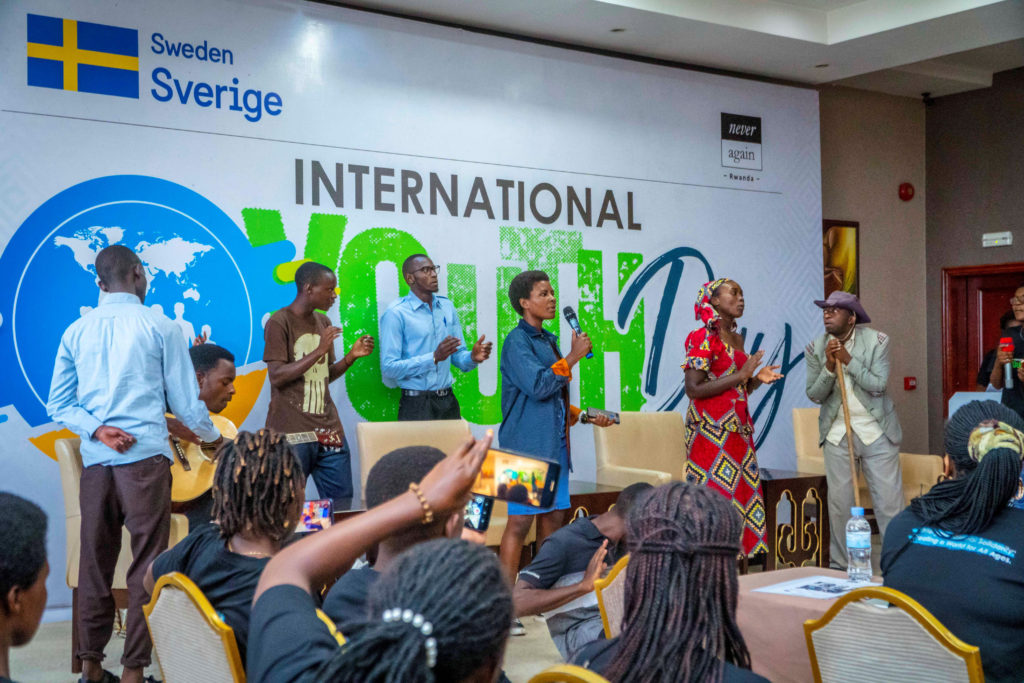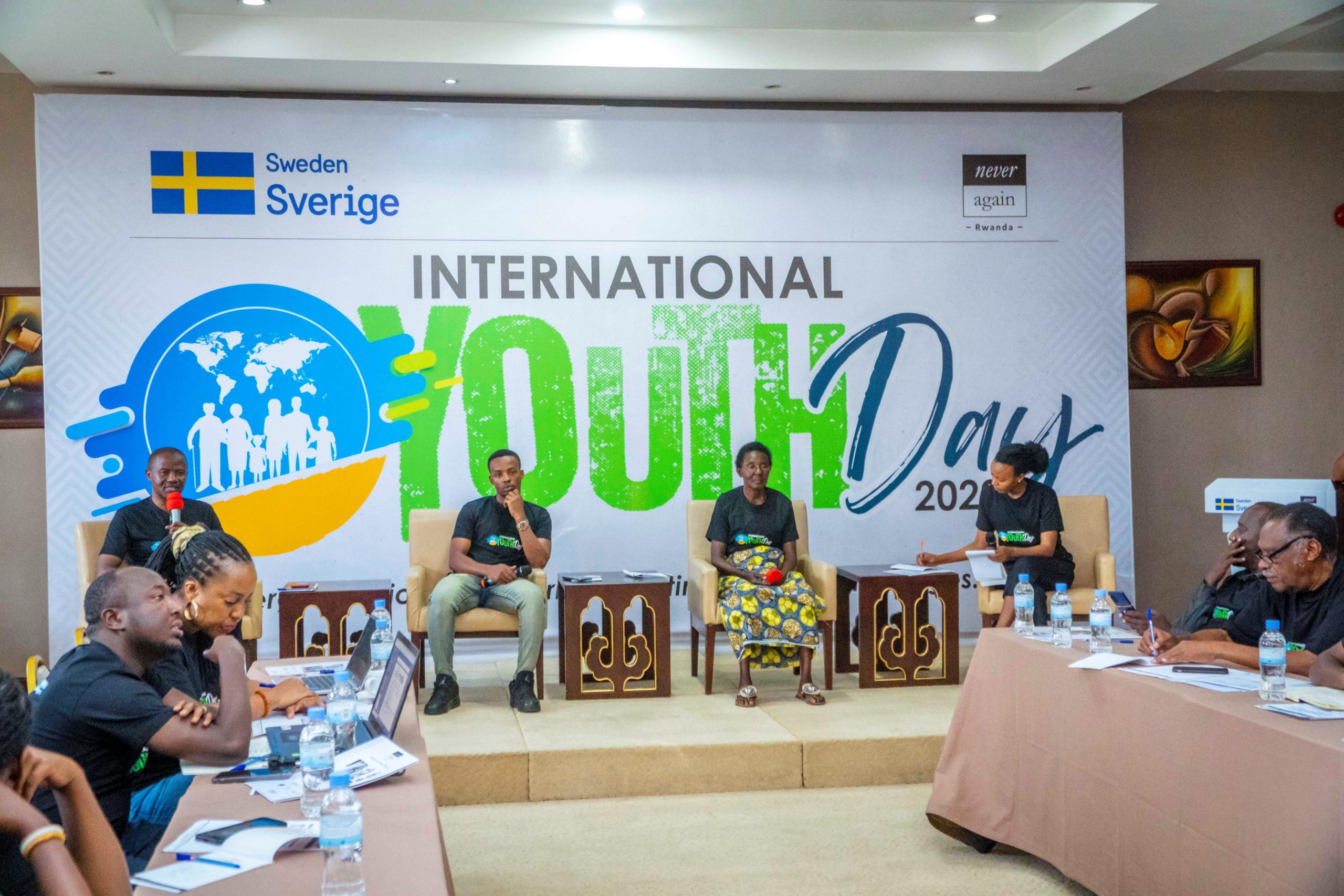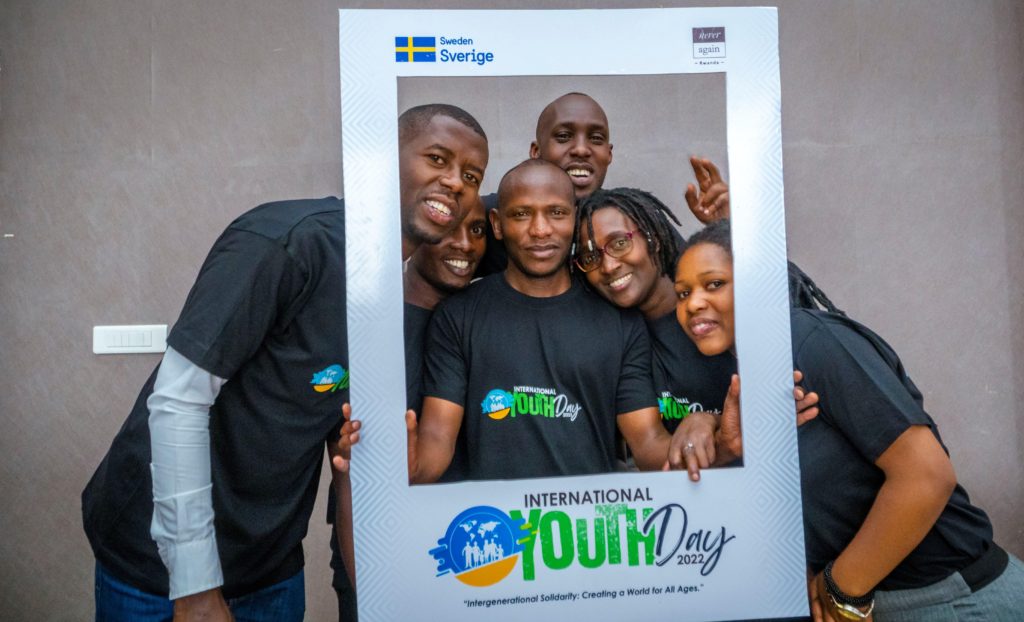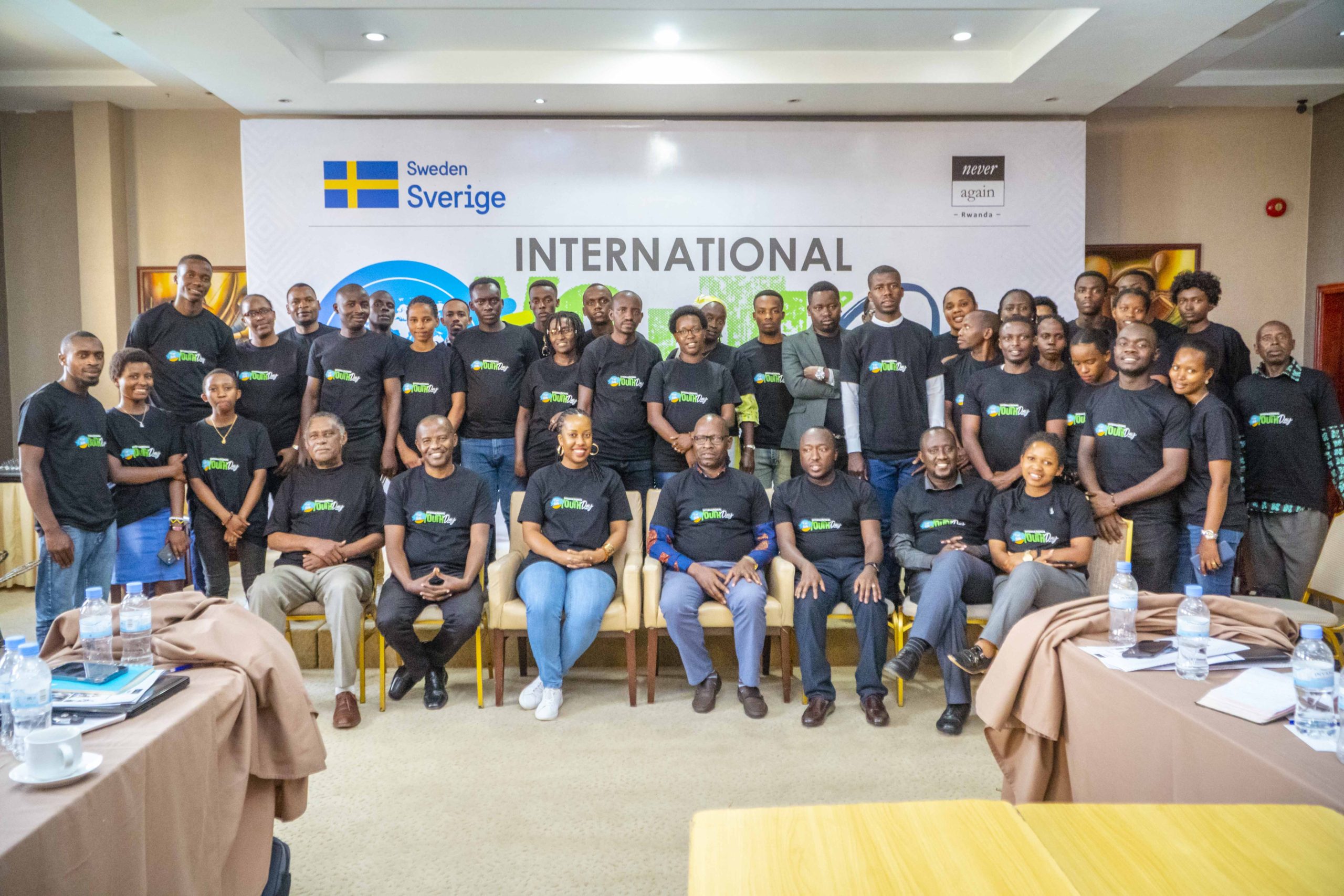All generations – young and old, want one thing in common – a better future, without necessarily compromising the present.
This was the one aspect that loomed large during the 2022 International Youth Day conference hosted by Never Again Rwanda (NAR) in Kigali, through the support of the Swedish International Development Cooperation Agency. The conference attracted over 100 participants, representing the young and older generations from various districts across the country. The two parties reflected on the divergent cultural norms, attitudes, and taboos between them that seem to cause contention. What was evidently obvious was the desire for both generations to explore strategies to foster a healthy and sustainable intergenerational solidarity.
In the wake of the COVID-19 pandemic, intergenerational solidarity was put under severe strain. The youth were faced by job losses, income squeezes, heavy dependency by the older generation and vulnerable members of their families, mental health issues and interruption in their school programming. The older generation was more prone to the COVID-19 virus and susceptible to death by it. Such a context has the potential to create and exacerbate Intergenerational tensions that are not only unique to crises. In-home and community settings, the old blame the young for not respecting them enough and the young criticize the old for not understanding them or giving them a chance to voice their ideas.

In a play titled “Urunana Rw’Abato N’abakuru Turukomereho” loosely translated as “Let us support the network of the young and old” performed by the youth troupe, Urumuri Talent Center, did an outstanding job in re-enacting the collective strain and tension between the young and the old. The play portrayed the old generation’s contempt for the youth’s sense of entitlement, and abandonment of moral values. The play, on the other hand, also painted a picture of the younger generation lamenting that the older generation denies them the freedom and opportunity to pursue and realize their dreams. These are the divergent views that the conference recognized, reflected upon, and drew suggestions that would allow both the old and young generations to work together to build the world they enjoy.
The conference explored diverse modes of dialogue to allow for a participatory and balanced conversation, such as keynote speeches, panel discussions, play performances, group exercises and plenary sessions. On the panel that consisted of youth, parents and CSO representatives, several issues surfaced. All ages have often been jilted by the past generation; in any time period, the older generation has always felt anxious about the erosion of the foundation of culture and values. The youth representative on the panel urged parents to find time to interact with their young children even in the hustle and bustle of life. The parent representative cautioned the youth on the negative use of social media such as social comparisons that are extremely harmful. The youth were encouraged to be active and pro-active in the existing community governance and citizen participation spaces such as Umuganda and Intekoz’Abaturage in a bid to learn and contribute to solving societal challenges

Several action points emerged from the conference, hinged on the need to make sacrifices for the greater good.
- As the population changes and the youth represent the dominant demography, so should the democratic process reflect the voices, opinions, and priorities of the youth.
- There is a need to train the youth on critical thinking and critical clicking in the positive use of social media as opposed to its negative utility that damages their self-esteem and mental health.
- It was highlighted that intergenerational solidarity is a two-way street that calls for obligations and responsibilities from both parties. While the older generation has demanded respect from the youth, they have an obligation to listen to the youth and educate them.
- Foras for engagement between the younger and older generation should be a two-way engagement platform instead of a one-way communication by the older generation. The older people should welcome feedback from the young ones.
- There is a need for intergenerational solidarity in tackling unemployment and inequality. The alarming rate of unemployment and socio-economic stress in the current young generation will severely impact their ability to provide favourable life opportunities to their children.
- As part of growth and development, the youth are constantly seeking, interacting with, and consuming new knowledge, ideas, and information. It is therefore critical that the older generation should be cautious about the information they feed to the youth.

When communication opportunities are offered, linkages are strengthened, and gaps reduced between generations. Action across all generations and from all key players is vital towards the attainment of SDGs. We therefore must leverage this solidarity to create a favorable world for all of us and the generation to come.
By Immy Mulekatete


